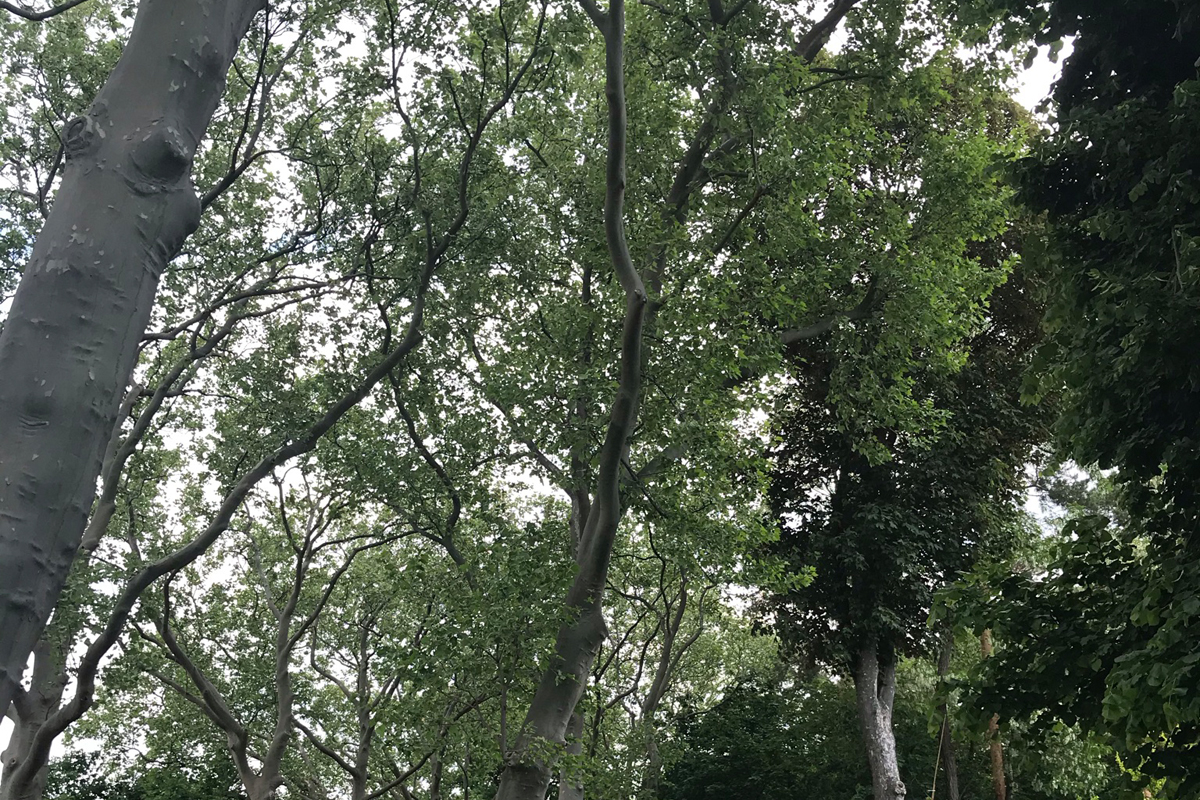
Massaria
A bio-based agent to protect sycamore trees from Splanchnonema platani, the causative agent of Massaria disease
Urban vegetation, and especially parks and avenues, play a crucial role for the microclimate in cities as they store carbon dioxide, reduce nitrogen oxides, particulate matter and ozone in the air, counteract a significant temperature increase in the summer months in cities and also bring positive biodiversifying benefits. However, trees in anthropogenic space are constantly exposed to biotic and abiotic stress factors. Pollution from exhaust fumes, fine dust and road salt, prolonged dry and warm periods, etc. have a direct effect on the tree. These factors influence the vitality of the trees on the one hand and thus their resistance to pests on the other.
The preservation of the plane tree as a historical plantation and its importance for species protection and biodiversity as well as for the urban microclimate is the goal of the project. Within the framework of this project, an innovative and sustainable method in the sense of non-chemical plant protection is being developed and applied to combat S. platani, the causal agent of Massaria disease, on the genus Platanus (plane trees). With an interdisciplinary approach, the infestation of plane trees with S. platani in urban green spaces (avenues and parks) is to be stopped and action is to be taken against this tree pathogen by stimulating naturally occurring mycoparasites. The innovation of the project lies, on the one hand, in the development and application of a bio-based, easy-to-apply carrier material made from waste raw materials such as sheep’s wool and beeswax as well as plant residues (leaves and fruit peels), mixed with plant strengthening agents such as extracts from cultivated algae and fruit processing residues (grapes, plums or apples). On the other hand, the aim is to develop and optimise a technical and biotechnological process for regulating harmful organisms that can ideally also be applied to other plant pathogens.
PROJECT DURATION:
2021-2023
PROJECT SPONSOR:
Project funding: Ministry of Agriculture, Environment and Climate Protection Brandenburg
GRANT-NUMBER-PN:
none
PROJECT MANAGER:
Dr. Kathleen Zocher
PROJECT PARTNER:
Teaching and Research Institute for Horticulture and Arboriculture e.V. (LVGA)